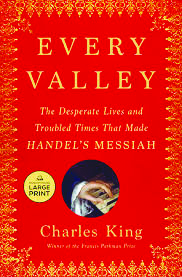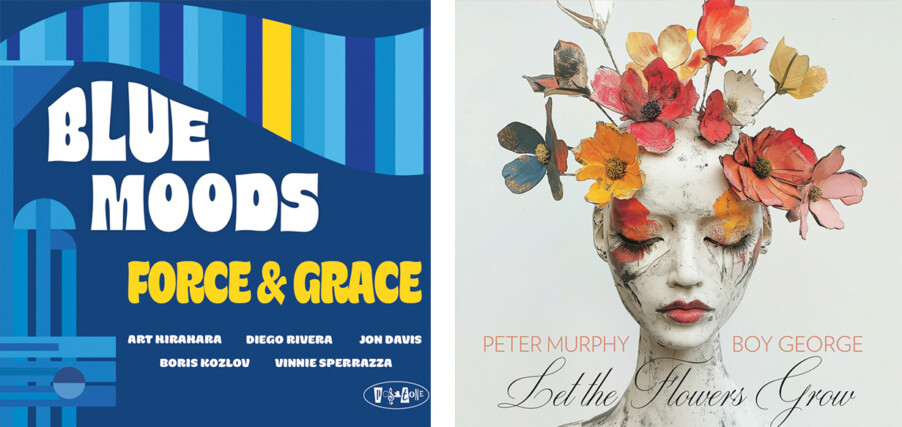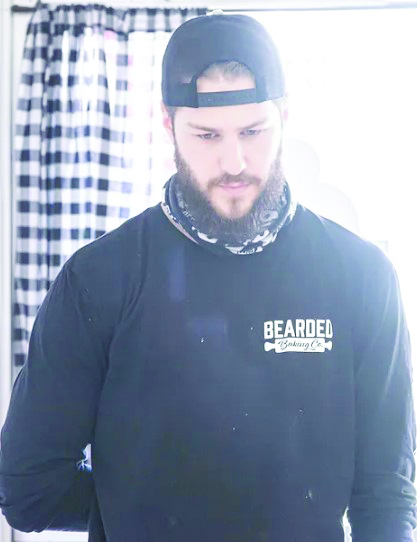Original songwriters at BNH Stage
By Michael Witthaus
mwitthaus@hippopress.com
An eight-week competition at Patrick’s Pub in Gilford sponsored by NH Music Collective culminates with performances from the winners and semi-finalists at the BNH Stage in downtown Concord on Dec. 1.
Singer-songwriter Ian Archibold took top honors in the final round on Nov. 18 and will headline the show. Second-place winner Ian Galipeau will perform ahead of Archibold, and Temple Mountain — the nom de tune of singer, guitarist and songwriter Eric Impallomeni — rounds out the bill-topping trio.
The rest of the performers are an eclectic bunch. Adrienne Mack-Davis offers hip-hop and R&B, Arthur Terembula has a rustic sound that’s somewhere between Tom Waits and a Smithsonian field recording, while Brendan Cleary, Willy Chase and Jason Oberstein sit comfortably in the folk, singer-songwriter genre.
The show is an excellent way for fans of original music to broaden their horizons. Take, for example, Ian Galipeau’s song “The Little Things.” A worthy counterpart to Jason Isbell’s “If We Were Vampires,” it distills a lifetime of love, marriage, parenthood and death with breathtaking precision. He’ll likely play that along with material from his 2022 album Like We Were Never Here At All and his most recent single, “Floorboard,” another storytelling gem.
Archibold released an EP, Parallel, in 2016, and cites influences ranging from The Beatles to Bruno Mars and Coldplay. His song “Valley of Uncertainty” is a good example of how he joins those disparate threads to craft a singular sound. He hails from Panama but has performed around the New England region for a while.
A well-traveled Long Island native, Temple Mountain blends deft finger-picking guitar with atmospheric vocalizing that recalls Elliot Smith, a singer-songwriter he cites as an influence. Lyrically idiosyncratic, with a bio stating that he has “a psychology background,” his songs charmingly probe the human experience.
NHMC is riding a successful wave of late. The idea for its monthly Sunday Sessions is to book a local performer in the BNH Stage’s intimate Cantin Room, then move into the main theater when ticket sales hit a certain level. This month, Charlie Chronopoulos sold out the big space, and a few months earlier, singer/songwriter Taylor Hughes came within a few dozen seats of doing the same.
“So far, we’ve had three shows go to the big stage,” NHMC principal John McArthur said by phone recently. “We book a lot of bar gigs … breweries and wineries, stuff like that, where they’re doing mostly cover songs. But this opportunity to perform original music in front of a listening audience, this is what I live for.”
The third annual singer/songwriter contest at Patrick’s attracted entries from as far away as Rhode Island. “This is how starved indie artists are,” McArthur said. “People that in past years would have gotten in didn’t. We’re trying to build a community of songwriters and indie singing, and it’s starting to work.”
Brad Myrick, who founded the musician-friendly organization, agreed with his partner McArthur.
“I love that we can tie one thing that we’re doing to support songwriters and original music and segue that into a proper theater show promoted well and in a city like Concord that has some movement,” he said. “These are the kinds of things that I didn’t have the ability to do five or 10 years ago … that we’ve grown to where we can do that feels really good.”
It’s a two-way street for artists and NHMC, which books a wide range of area venues, Myrick continued.
“John set up the open mic as a way to have a forum to hear some new people and invite some folks,” he said. “It’s opened up some new performers for us, and it works great for them. They come up here and get new fans. It’s building something. I want people to say there’s a scene in New Hampshire. I want that to be felt and be real.”
NHMC Sunday Sessions: Songwriter Showcase
When: Sunday, Dec. 1, 6 p.m.
Where: BNH Stage, 16 S. Main St., Concord
Tickets: $18.75 at ccanh.com
Featured photo: First, second and third place winners of the Patrick’s Pub Songwriter Competition. Pictured L to R: Ian Archibold, Ian Galipeau, Temple Mountain. Courtesy photos..






